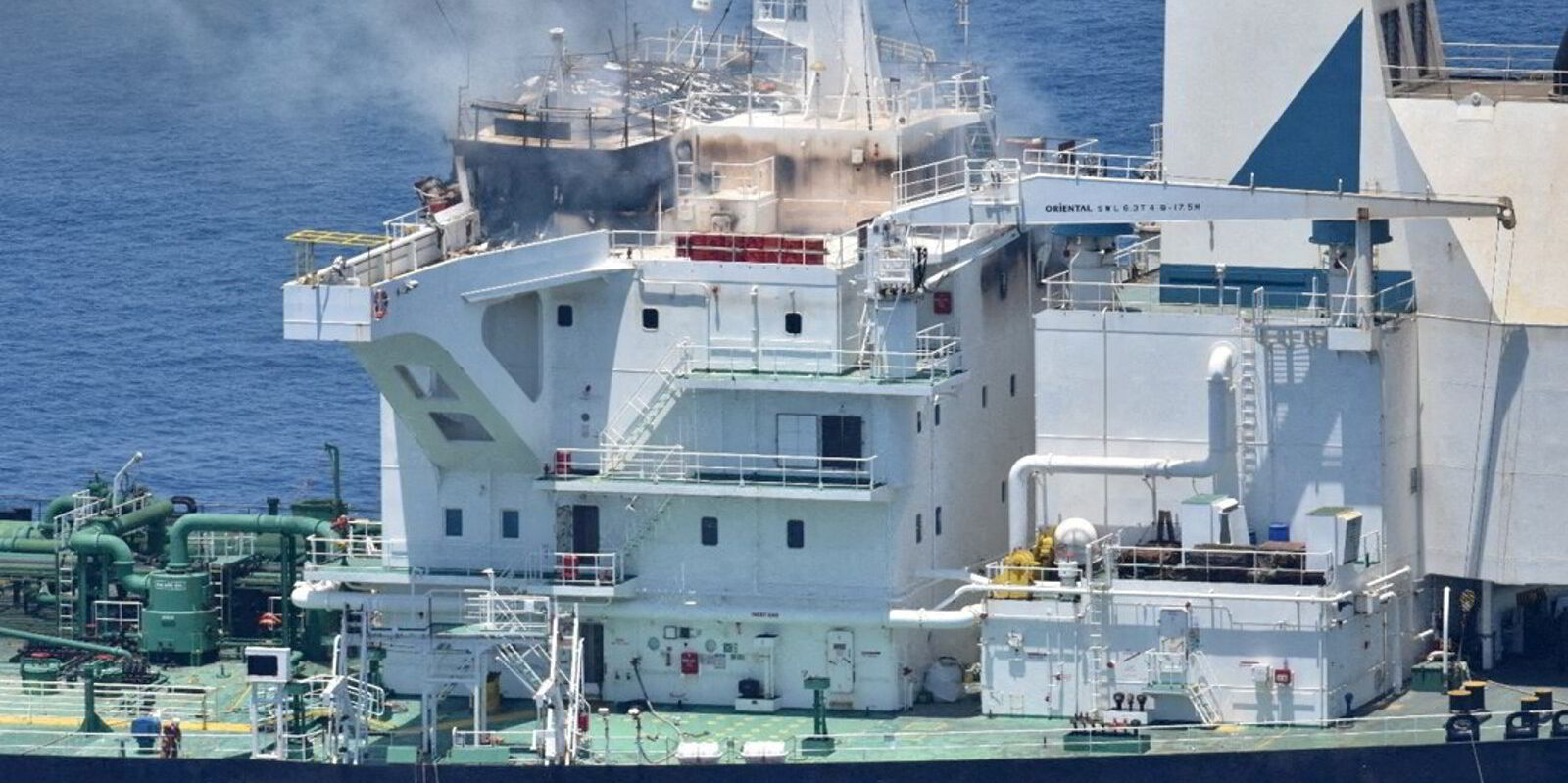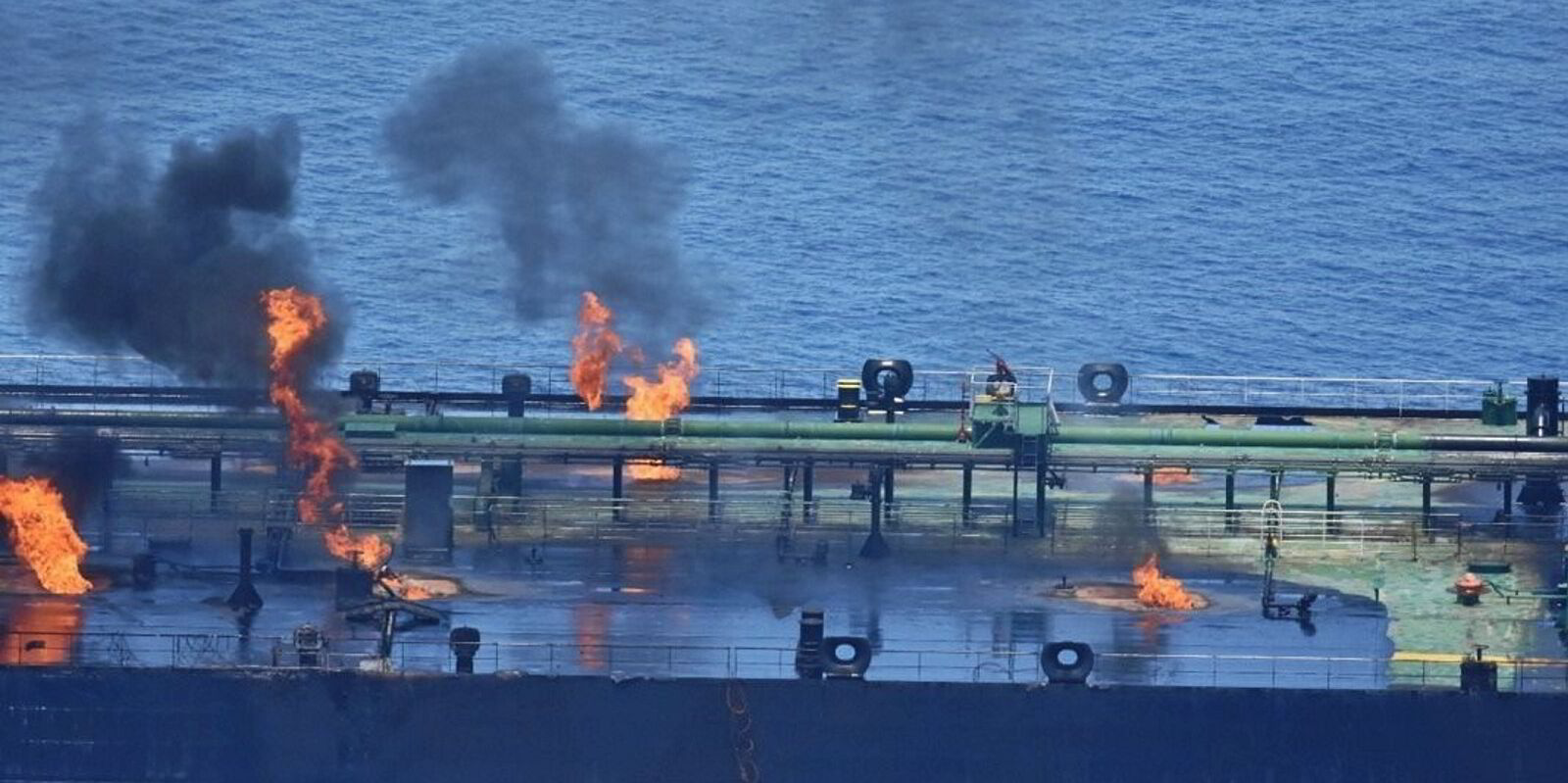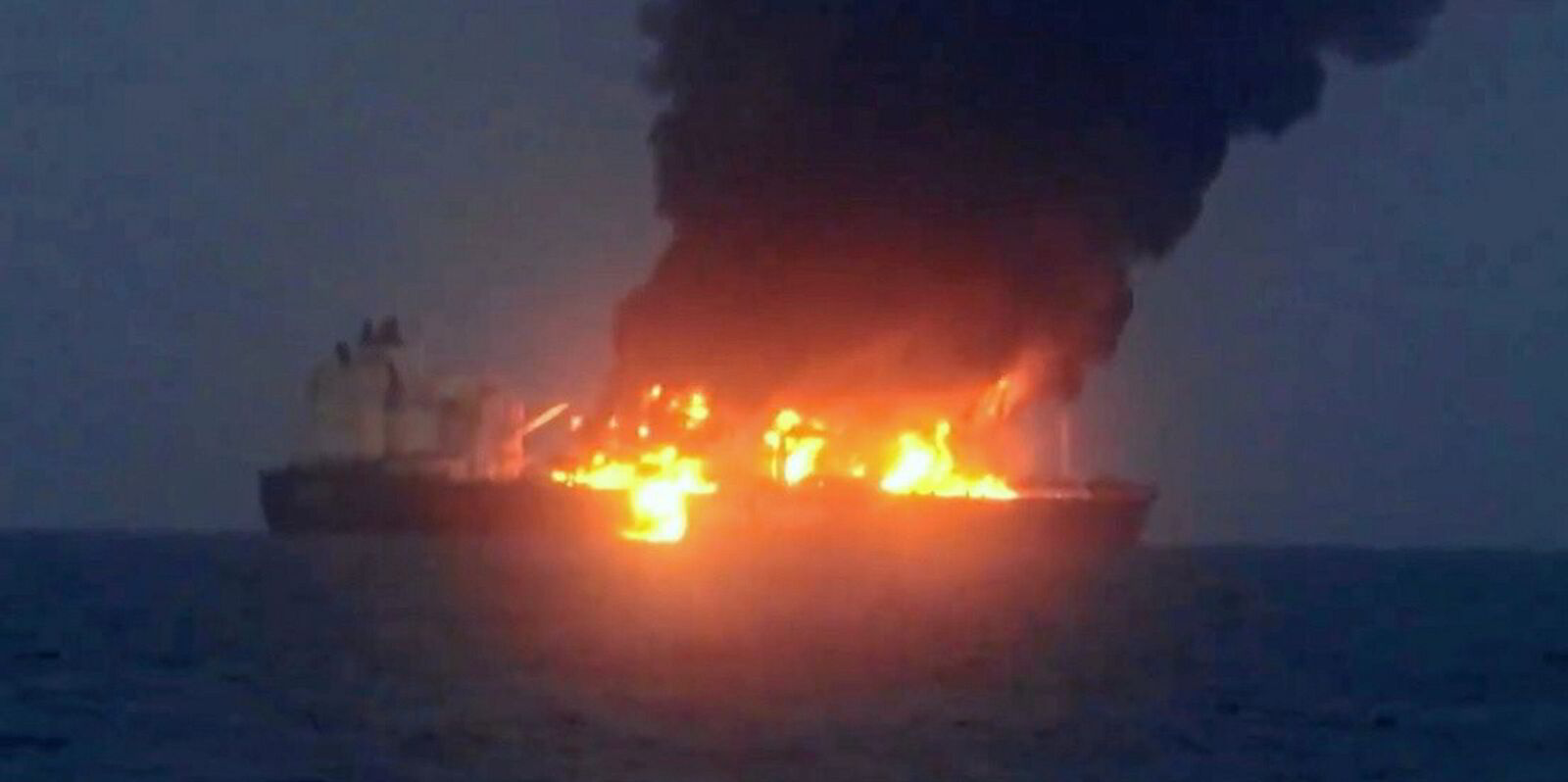A Delta Tankers suezmax vessel appears to be leaking oil in the Red Sea after a Houthi attack last week, according to the US government.
The 164,000-dwt Sounion (built 2006) remains on fire and immobilised days after the assault, a Pentagon spokesman said.
The ship was attacked off Hodeidah on 23 August.
Air Force Major General Patrick Ryder was quoted by the Financial Times as saying: “It is currently on fire and appears to be leaking oil, presenting both a navigational hazard and a potential environmental catastrophe.”
Reuters cited Ryder as saying that a “third party” had tried to send two tugs to help salvage the Sounion, but the Houthis threatened to attack them.
“These are simply reckless acts of terrorism which continue to destabilise global and regional commerce, put the lives of innocent civilian mariners at risk and imperil the vibrant maritime ecosystem in the Red Sea and Gulf of Aden, the Houthis’ own backyard,” he added.
Ryder said the US military is working with other partners in the region on a plan to help the ship and lessen its potential environmental impact.
The Yemeni Houthi group said it attacked the tanker in part because Delta Tankers violated its ban on “entry to the ports of occupied Palestine”.
Delta Tankers told TradeWinds it is doing everything it can to move the vessel and its cargo.
“For security reasons, we are not in a position to comment further,” it added.
The Sounion was the third vessel operated by Athens-based Delta Tankers to be attacked in the Red Sea this month.
Caribbean collision
The largest recorded oil spill from a ship was in 1979, when about 287,000 tonnes of oil escaped from Greece’s Atlantic Empress after it collided with another crude tanker in the Caribbean off Tobago during a storm.
TradeWinds reported on Monday that at least six fires were burning on the Sounion.
The ship was hauling 922,000 barrels of Iraqi crude when it was attacked, according to Kpler tracking data.
The Yemeni militant group is suspected of boarding the vessel to plant explosives before triggering them remotely, according to security officials.





